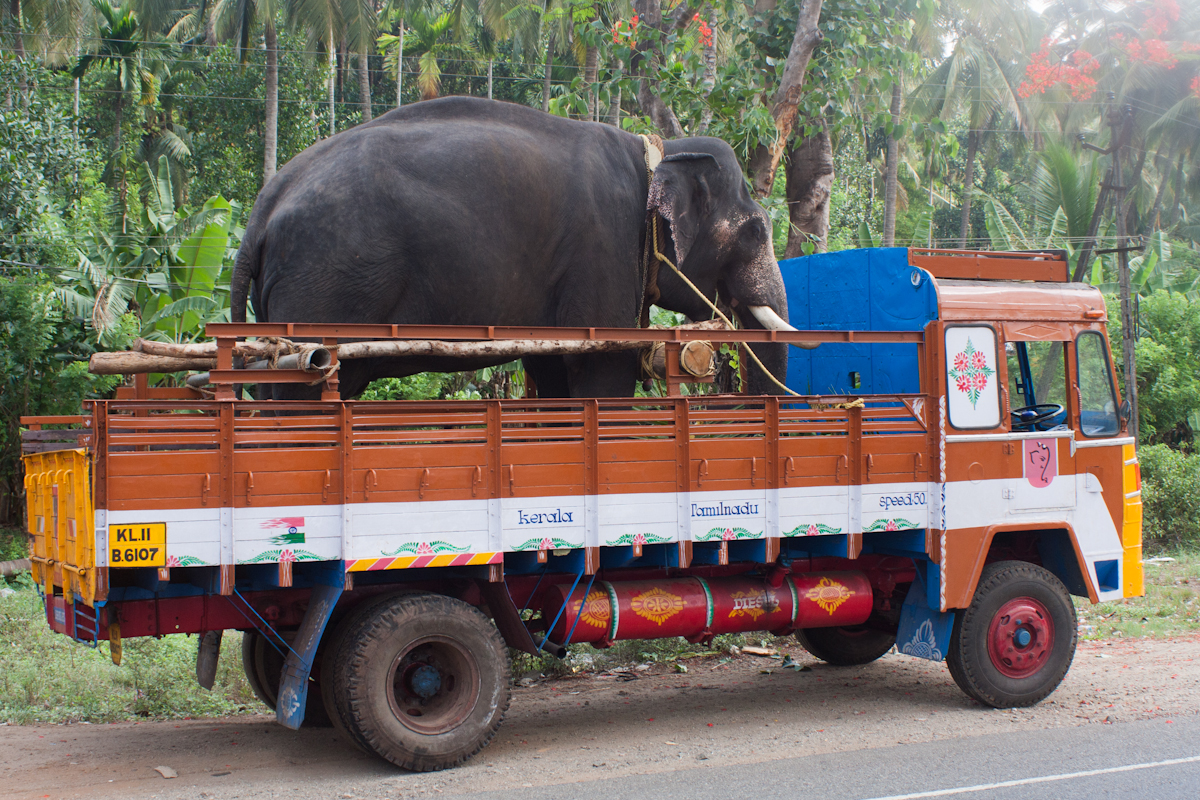Elephants are herbivorous and can be found in different habitats including savannah, forests, deserts and marshes. They prefer to stay near water. They are considered to be keystone species due to their impact on their environments. Other animals tend to keep their distance, and predators such as lions, tigers, hyenas and wild dogs usually target only the young elephants (or “calves”). Females (or “cows”) tend to live in family groups, which can consist of one female with her calves or several related females with offspring. The latter are led by the oldest cow, known as the matriarch. Elephants have a fission-fusion society in which multiple family groups come together to socialise. Males (or “bulls”) leave their family groups when they reach puberty, and may live alone or with other males. Adult bulls mostly interact with family groups when looking for a mate and enter a state of increased testosterone and aggression known as musth, which helps them gain dominance and reproductive success. Calves are the centre of attention in their family groups and rely on their mothers for as long as three years. Elephants can live up to 70 years in the wild. They communicate by touch, sight, and sound; elephants use infra-sound, and seismic communication over long distances. Elephant intelligence has been compared with that of primates and cetaceans. They appear to have self-awareness and show empathy for dying or dead individuals of their kind. More…
